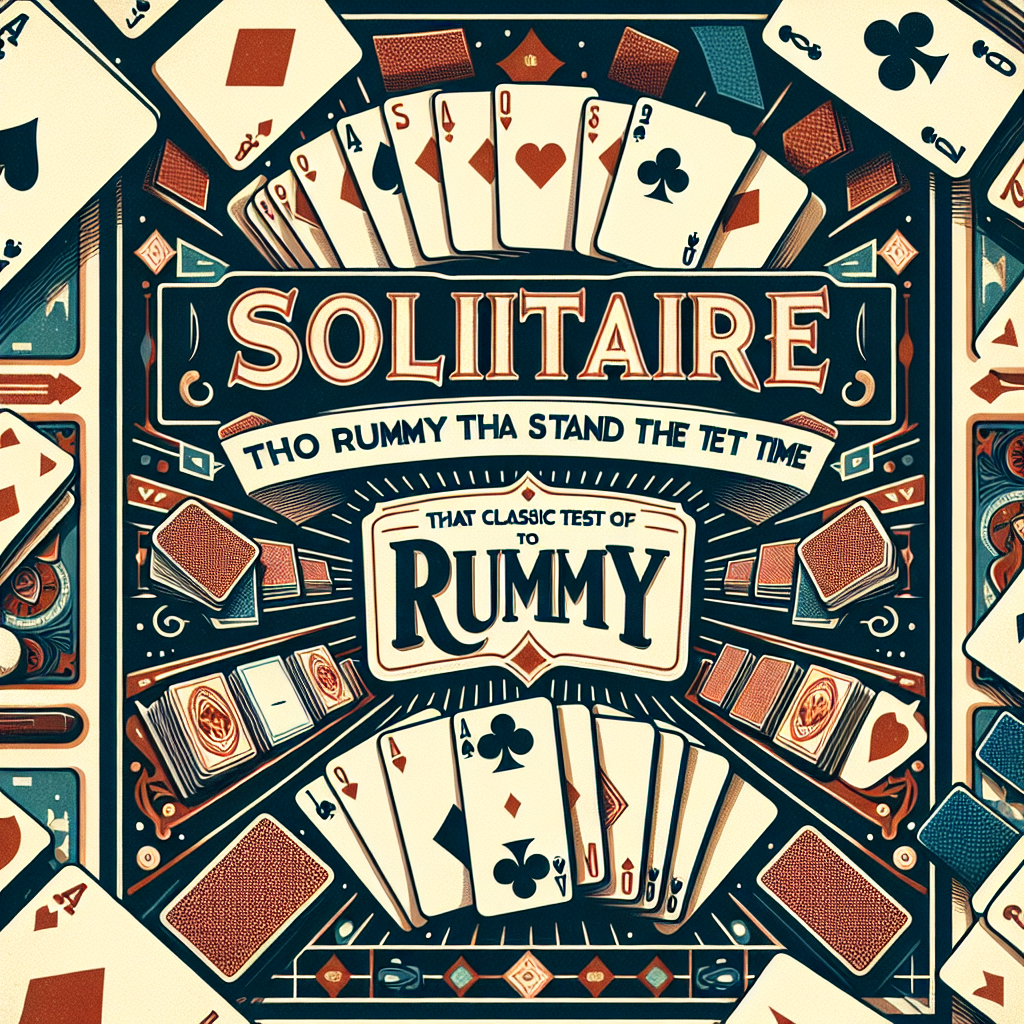From Solitaire to Rummy: Classic Card Games That Stand the Test of Time
In an age where digital entertainment is omnipresent, classic card games continue to hold a special place in the hearts of players around the world. From the solitary thrill of Solitaire to the strategic depths of Rummy, these timeless games have managed to endure the test of time, bridging generational gaps and transcending cultural boundaries.
The Allure of Card Games
Card games possess unique characteristics that make them both engaging and accessible. Easy to set up, they often require minimal equipment—just a standard deck of cards in most cases. Their flexibility allows for a wide range of gameplay, from quick rounds with friends to long, contemplative sessions alone. Most card games offer a blend of luck and strategy, appealing to players with varying levels of competitiveness and skill.
A Brief Overview of Classic Card Games
1. Solitaire
Often regarded as the quintessential solo card game, Solitaire—particularly its Klondike version—has spawned countless variations and adaptations. First appearing in the late 18th century, the game gained massive popularity in the 20th century, especially with the advent of personal computers. Players find joy in organizing cards in descending order and by suit while clearing the tableau. The allure of Solitaire lies in its perfect blend of strategy, patience, and the satisfaction derived from completing the game, making it a go-to option for solitary leisure time.
2. Rummy
Rummy is another game that boasts a rich history, with roots tracing back to the early 19th century. The objective is simple: to form sets or runs of cards. While the rules can vary significantly from one version to another—ranging from Gin Rummy to Indian Rummy—the essence remains the same. The allure of Rummy comes from its social nature and strategic depth; it requires players to carefully observe opponents while managing their own hands. The thrill of melding cards together and outsmarting opponents ensures Rummy holds its ground as one of the most popular card games.
3. Poker
No discussion of classic card games would be complete without mentioning Poker. With its myriad variations, from Texas Hold’em to Omaha, Poker combines strategy, psychology, and gambling into an exciting experience. It has grown from a simple pastime in the 19th century to a phenomenon that encompasses high-stakes tournaments and online platforms. The social element of bluffing and reading opponents adds a layer of intrigue, drawing players of all backgrounds into its fold.
4. Bridge
Known as the card game of intellectuals, Bridge is often played in partnerships and is revered for its depth and complexity. Originating in the 19th century, it involves bidding, signaling, and strategizing effectively with a partner. The game emphasizes teamwork and communication, often resulting in spirited competition at clubs across the globe. Its rich tapestry of strategy keeps players coming back, and even the most experienced players find new challenges with every session.
Why They Endure
The enduring popularity of these card games can be attributed to several factors:
1. Simplicity and Accessibility
Most classic card games can be learned swiftly, making them easy for newcomers to pick up. Their straightforward rules encourage social interaction and inclusivity, inviting players of all ages and backgrounds to join in.
2. Social Interaction
Card games provide a platform for socializing, whether at family gatherings, game nights with friends, or online communities. The shared experience fosters camaraderie and can even spark friendships that last a lifetime.
3. Mental Engagement
While luck plays a role, strategic thinking, memory, and decision-making are key components of most card games. This mental engagement provides not only enjoyment but also a sense of accomplishment when players devise strategies and outsmart opponents.
The Digital Revolution
With the rise of technology, many classic card games have found a new lease on life through online platforms and mobile apps. Players can challenge friends or strangers, enjoy themed versions, and access tutorials that enhance their skills. This digital adaptation keeps these games relevant, allowing them to continue evolving while maintaining their classic essence.
Conclusion
From the solitary pursuit of Solitaire to the intricate strategies of Rummy and the social dynamics of Poker and Bridge, classic card games stand as testaments to the power of human connection and creativity. They have successfully navigated the tides of time, continually adapting while preserving the core elements that make them beloved by generations. As we embrace the future, these timeless games will undoubtedly continue to captivate audiences, proving that some pleasures are truly everlasting.




